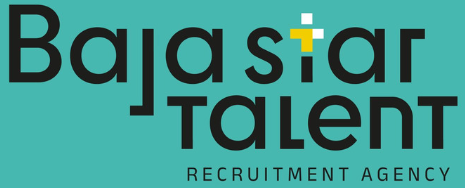According to Deloitte “2024 Gen Z and Millennial Survey”, with nearly 23,000 respondents across 44 countries, young people are capable of living a company that does not show environmental commitment.

Environmental sustainability has emerged as a pivotal concern for both Gen Z and millennials, reflecting a deep-seated anxiety about the future of our planet, according to Deloitte 2024 Gen Z and Millennial Survey .
A recent survey with more than 23000 respondents reveals that 62% of Gen Zs and 59% of millennials have experienced anxiety or worry about climate change in the past month. This widespread unease underscores the urgency these generations feel towards addressing environmental issues.
Both Gen Z and millennials are not just passive worriers; they are actively taking steps to mitigate their environmental impact.
From reducing waste and conserving energy to advocating for policy changes, these generations are committed to making a difference. This proactive stance extends beyond personal habits into their broader expectations from governments and businesses.
These younger generations are vocal about their desire for stronger climate action from both governments and the private sector. They believe that governments should enforce stricter regulations on businesses to ensure more robust climate action.
Simultaneously, they expect businesses to facilitate and promote sustainable choices among consumers. For them, protecting the environment is not just a governmental or corporate responsibility but a collaborative effort where both entities have significant roles to play.

The Business Opportunity in Sustainability
Interestingly, Gen Zs and millennials perceive environmental sustainability as the area where businesses have the greatest potential to drive change. This belief is reshaping their career choices and consumer behavior. Environmental values are increasingly influencing their decisions, with two in ten individuals from these cohorts already having switched jobs or industries to align better with their environmental principles. Furthermore, another quarter of both groups plans to make such a change in the future.
The commitment to environmental values is evident in how Gen Zs and millennials approach their careers. They are prioritizing employers with strong environmental practices and seeking roles that contribute to sustainability. This trend is indicative of a broader shift in workforce dynamics, where job satisfaction is closely tied to the environmental impact of one’s work.
Similarly, their consumer behavior is guided by a company’s environmental practices. These generations actively research and support businesses that demonstrate a genuine commitment to sustainability. This shift towards environmentally conscious consumption is pushing companies to adopt greener practices and more transparent environmental reporting.

Navigating Economic Optimism Amid Financial Insecurity
As the world emerges from the shadows of the COVID-19 pandemic, Gen Z and millennials are expressing a cautious optimism about the future of their economies and personal finances. According to recent surveys, nearly one-third of Gen Zs (32%) and millennials (31%) believe that their country’s economy will improve within the next year. This positive outlook has been steadily increasing and is now at its highest level since the pre-pandemic 2020 survey.
This renewed optimism extends beyond the national economy to their own financial situations. Nearly half of Gen Zs (48%) and 40% of millennials anticipate that their personal financial circumstances will improve over the next year. This sentiment suggests a growing confidence in their ability to navigate economic challenges and seize new opportunities.
However, this optimism is tempered by significant financial concerns. Despite the positive outlook, financial insecurity remains a pressing issue for these generations. About 30% of Gen Zs and 32% of millennials report feeling financially insecure. Additionally, more than half of both groups are living paycheck-to-paycheck, highlighting the precarious nature of their financial stability.
The backdrop to this economic narrative is a complex social and political landscape. As many countries approach pivotal elections, only a quarter of Gen Zs and millennials expect positive changes in their country over the next year. This represents just a one-point increase from last year, indicating a pervasive uncertainty about the future direction of their nations.
Many young people feel disconnected from the broader political process and doubt their ability to influence their country’s overall direction. This sentiment reflects a broader disenchantment with traditional political mechanisms and a search for more immediate and tangible ways to enact change.
